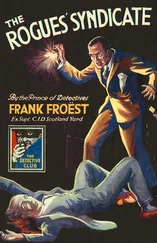'You've got methane hydrates in there?'
'A couple of hundred kilos. We recently managed to produce some ourselves, but we don't advertise it. The oil companies would like us to use the simulator entirely for their purposes and, of course, we wouldn't mind their cash, but not at the expense of our scientific autonomy.'
Johanson craned his neck to look at the top of the tank. High above him a group of scientists were gathered on the uppermost walkway. The whole thing looked strangely unreal – like a Bond scene from the 1980s.
'We can regulate the temperature and pressure with absolute precision,' Bohrmann continued. 'At the moment they correspond to a depth of eight hundred metres. At the bottom of the chamber we've got a layer of stable hydrates two metres deep. In the ocean it would be twenty or thirty times that. Underneath that layer we've simulated heat from the Earth's core to create a pocket of gaseous methane. It's a fully functional miniature seabed.'
'Amazing,' said Johanson. 'But what are you doing with it? I mean, you can observe the hydrates, of course, but…' He tailed off.
Sahling came to his aid. 'You want to know what we do apart from observe?'
'Yes.'
'At the moment we're trying to re-create a geological situation dating back fifty-five million years. At some point in the late Paleocene epoch, just prior to the Eocene, there seems to have been a global-warming event of massive proportions. The ocean emptied. Seventy per cent of all life on the seabed died, including the majority of single-cell organisms. Large sections of the deep sea became uninhabitable, while on land there was a biological revolution. Crocodiles appeared in the Arctic and primates and modern mammals migrated from subtropical climates to North America. All in all, an almighty mess.'
'How can you tell?'
'Sediment cores. Everything we know about global warming in that period is due to a single core of sediment taken from a depth of two thousand metres.'
'And does the sediment tell us what caused it?'
'Methane,' said Bohrmann. 'The sea temperature seems to have risen, causing large quantities of hydrates to become unstable. The continental slopes collapsed, resulting in underwater landslides that exposed further deposits of methane. Over a period of only thousands – or maybe hundreds – of years, billions of tonnes of gas were released into the ocean, and dispersed into the atmosphere. It was a vicious circle. Methane has thirty times the global-warming potential of carbon dioxide. The temperature rose all over the planet, including in the oceans, prompting the hydrates to dissociate, and setting the whole thing in motion all over again. The Earth became a gigantic oven.' Bohrmann turned to Johanson. 'The temperature in the depths reached fifteen degrees. Nowadays it's between two and four. That's a pretty major shift.'
'Disastrous for some species, but as for the rest… I guess they got off to a warm start. I see what you're saying. Next up is the extinction of mankind, I suppose?'
Sahling smiled. 'Things aren't that drastic yet. But you're right. There's reason to believe that we're currently in a phase of climatic fluctuation. The hydrate reserves in the oceans are highly volatile. That's why we're paying so much attention to your worm.'
'But what's a worm got to do with the stability of hydrates?'
'In theory, nothing. The layers of hydrate are hundreds of metres thick. The worms stay on the top layer, melt a centimetre or two of ice, and sit there contentedly with their bacteria.'
'But our worm's got vast jaws.'
'Our worm makes no sense at all. Come and see for yourself.'
They walked over towards a semi-circular control panel at the back of the room. It reminded Johanson of the control desk for Victor, but this one was significantly bigger. Most of the two dozen or so monitors had been switched on and were transmitting pictures from inside the tank. The technician on duty greeted them.
'We keep tabs on what's happening with the help of twenty-two cameras. In addition to that, we're constantly taking readings from every cubic centimetre,' explained Bohrmann. 'See those white patches on the upper row of monitors? They're hydrates. We set down two of your polychaetes just on the left here. That was yesterday morning.'
Johanson squinted up at the screens. 'I see ice, but no worms,' he said.
'Take a closer look.'
Johanson scrutinized every detail of the pictures. Suddenly he noticed in two dark patches. He pointed to them. 'What are those? Indentations in the ice?'
Sahling said something to the technician. The picture changed. All of a sudden the worms came into view.
'The dark spots are holes,' said Sahling. 'Let's look at the sequence in time-lapse.'
Johanson watched the worms wriggle over the ice. They crawled around for a bit, as though they were on the scent of something. Speeded up, their movements were alien and disturbing. On either side of their pink bodies, their bristles quivered as though they were charged.
'Now, watch carefully.'
One of the worms had stopped crawling. Wave-like movements pulsed through its body. Then it disappeared into the ice.
Johanson gave a low whistle. 'My God! It's burrowed in.'
The second worm was still on the surface, a little further to one side. Its head moved and suddenly its proboscis shot forward, revealing its jaws.
'They're eating their way into the ice!' exclaimed Johanson.
He stood, paralysed, in front of the screens. There's no reason to be shocked, he told himself. The worms live symbiotically with bacteria that break down hydrates, but they're equipped with jaws for burrowing.
The solution was obvious. The worms were trying to reach the bacteria buried deeper in the ice. He watched them, fascinated, as they dug into the hydrates, their rear ends wiggling. Then they were gone. Only the holes remained, two dark patches in the ice.
It's nothing to get worked up about, he thought. Some worm species spend their whole lives burrowing. But why would they burrow into hydrates? 'Where are they now?' he asked.
Sahling glanced at the monitor. 'They're dead.'
'Dead?' Johanson echoed.
'They suffocated. Worms need oxygen.'
'I know – that's the whole point of the symbiosis. The bacteria produce nutrients for the worm, and the worm provides oxygen for the bacteria. What went wrong?'
'They dug themselves to death. They chomped their way through the ice, fell into the pocket of methane and died.'
'Kamikaze worms,' muttered Johanson.
'It does look like suicide.'
Johanson thought for a moment. 'Unless they were thrown off-course by something.'
'Maybe. But what ?There's nothing in the hydrates that could explain such behaviour.'
'Maybe the gas pocket.'
Bohrmann scratched his chin. 'We wondered about that, but it doesn't explain why they'd dig their way to death.'
Johanson pictured the mass of wriggling worms at the bottom of the ocean. He was feeling increasingly uneasy. What would happen if millions of worms burrowed into the ice?
Bohrmann seemed to hear his thoughts. 'The worms can't destabilise the ice,' he said. 'On the seabed the hydrate layers are infinitely thicker than they are here. Even crazy creatures like these would only dent the surface. They'd manage a tenth at most before death reeled them in.'
'So, what's the next step? Will you test some more specimens?'
'We can use the worms we kept in reserve. Ideally, though, we'd like to examine them in situ . That should please Statoil. In a few weeks' time the RV Sonne will be leaving for Greenland. If we set sail a little earlier, we could stop off at the place where they first showed up and take a look.' Bohrmann shrugged 'It's not up to me, though. We'll have to wait for a decision. It was just an idea I developed with Heiko.'
Читать дальше












